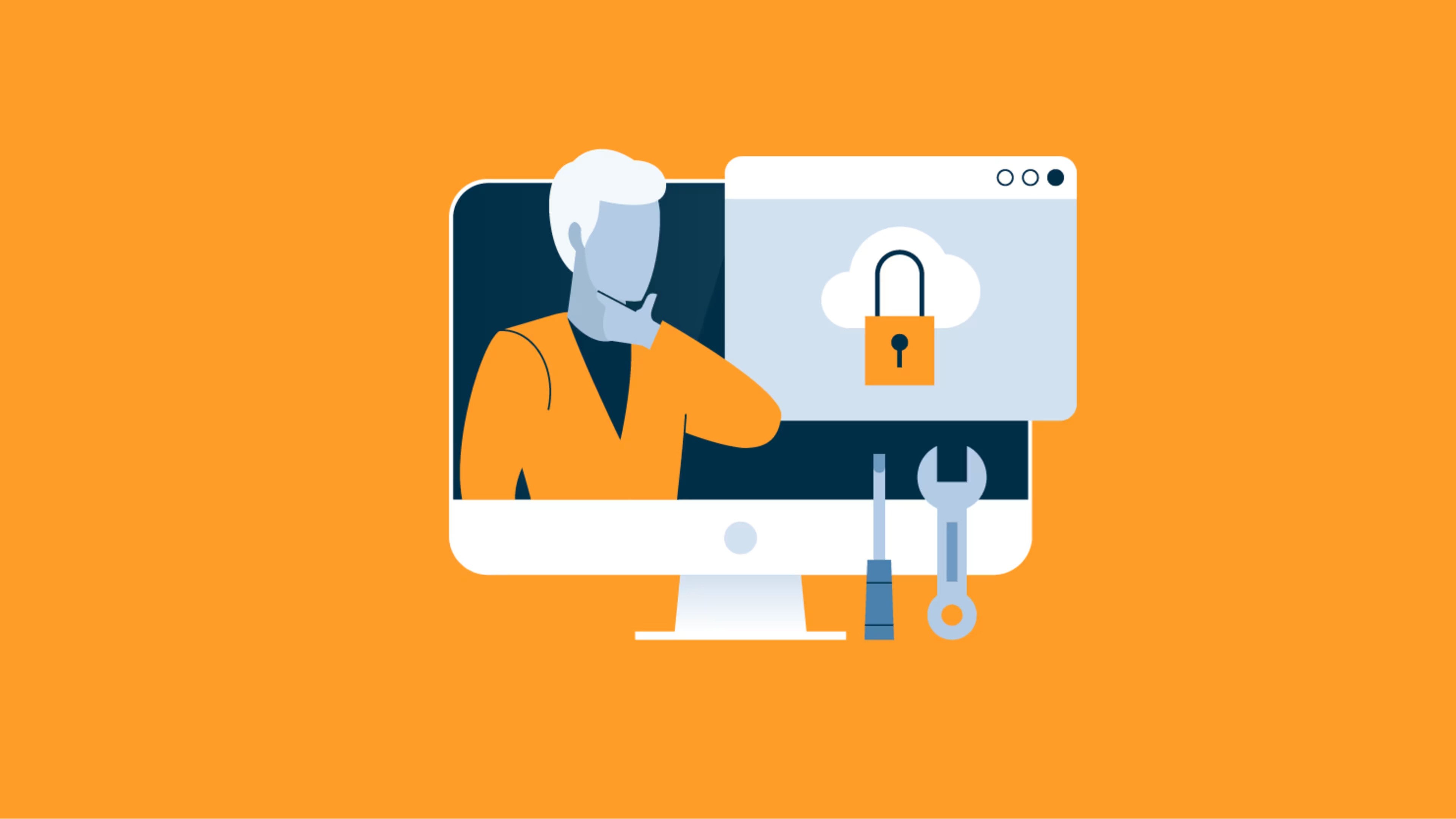While the IT function is critical, it can be expensive and difficult to maintain in-house.
Information technology (IT) is a core function of modern small businesses, playing a critical role in operations, performance, and efficiency. IT’s ultimate goal is to leverage technology to support overall business goals and objectives, and for small to midsize business leaders, IT plays a crucial role in enhancing efficiency and productivity when teams are short on bandwidth and resources.
While the IT function is critical, it can also be expensive and difficult to maintain in-house. Many business leaders look to outsource IT to minimize costs, maximize internal productivity, and obtain the most innovative services and expert advice. 44% of organizations utilize business service providers because they don’t have the bandwidth even though they have the expertise in-house, and outsourcing IT is a popular option for small businesses. In this article, we’ll explain the different types of IT services, how to select the right IT services for your budget, and the benefits of outsourcing IT.
Types of IT services
Depending on your business needs, long-term goals, industry, and internal resources, some types of IT services might serve you better than others. Small businesses can outsource a variety of IT activities to improve operational efficiency, performance, and innovation. Take a look at the different types of outsourced IT functions, including everything from fully managed IT services to cybersecurity to network services, and why they might be valuable for your small business.
Managed IT services
Managed IT services typically refers to the full suite of IT, including managing network applications, infrastructure, and cybersecurity through ongoing support. Managed IT service providers are responsible for continuous management, maintenance, and support of critical IT infrastructure and operations. A managed IT team aims to lighten the workload of small businesses’ in-house IT teams and often work under contract or on subscription services.
A managed IT provider can handle a variety of IT tasks, including help desk support, user provisioning and management, backups and disaster recovery, cybersecurity, threat detection, cloud services, and more. For example, a managed IT provider can support the creation, management, and assignment of user profiles and account access. Managed IT services improve operational efficiency, communication, data management, security and compliance, and more. Working with a trusted, managed IT provider allows businesses access to the latest technology and most up-to-date expertise without hiring and rotating those skilled employees in-house.
Cloud services
A cloud service provider is a third-party company that provides cloud-based computing, resources, infrastructure, or storage services. Through public cloud, private cloud, or various on-demand cloud computing components, a cloud service provider offers Infrastructure-as-a-Service (IaaS) through remote servers hosted on the internet.
For example, small businesses might use a public cloud to store less sensitive company data. Utilizing a public cloud instead of a private cloud allows them to scale up and down in response to demand, as public clouds can provide resources more on-demand, obtain access to stringent security standards, and pay for only the services they use. On the other hand, private clouds are not as conducive to rapid scaling.
Cybersecurity services
Small businesses are more vulnerable to cyberattacks than large enterprises. Typically, they don’t have the budget or resources to fully support a comprehensive cybersecurity plan, making them easy targets for cybercriminals. Cybersecurity incidents can also be extremely devastating for a small business, costing potentially tens of thousands of dollars in lost productivity, revenue, and intangible customer trust.
Outsourcing cybersecurity allows small businesses to obtain the most up-to-date, strategic services without the lengthy and expensive process of hiring a full in-house cybersecurity team. Small businesses don’t have to worry about the latest training or certifications as new threats emerge, as their outsourced cybersecurity firm is responsible for learning and development. This allows internal teams to stay focused on other projects as business leaders can rest assured that their organizations’ infrastructure is safe and secure.
Networking services
Networking services manage and monitor applications in your computer’s infrastructure that connect offices, branches, or remote locations. As a network is a collection of computer systems linked together, networking services work across the entire network infrastructure. Networking services might involve domain name system hosting, configuration protocols, internet protocols, file transfer security, firewall services, and more. These types of services work together to create a reliable and efficient communication infrastructure for all computers and devices within your small business’s network.
Software services
Outsourcing software services can mean a variety of things, but typically it refers to software-as-a-service (SaaS) applications. SaaS platforms deliver applications and functionalities over the internet and are accessed through a third party. For example, they might be cloud-based SaaS web applications, communication tools, content management systems, customer relationship management systems, or business intelligence and analytics tools. While all of these different software solutions would be incredibly expensive to develop and maintain in-house, working with third-party vendors offers accessibility, scalability, and cost-effectiveness, all while getting access to the latest technology.
Many small businesses use a variety of SaaS platforms to automate tasks, streamline productivity, organize information, and gather data for insights and informed decision-making.
Hardware services
Hardware services involve the support of an outside IT company, specifically on hardware, such as servers, computers, laptops, networking, equipment, and more. Typically, hardware service providers are responsible for the maintenance, support, and optimization of all your small business hardware assets. This might include the physical upkeep as well as routine maintenance to prevent failure or downtime. It also might involve asset tracking and new device setup when an employee joins or gathering company equipment when they leave.
Besides providing the most up-to-date expertise, hardware services also reduce operational overhead if you’re able to rent devices instead of purchasing them outright.
IT consulting
IT consultants provide expert advice and strategic recommendations regarding various IT challenges. They conduct thorough assessments and analyses of your current infrastructure, systems, and processes and then make strategic recommendations based on your existing IT infrastructure. IT consulting is typically highly personalized and allows a third party to come in for a thorough assessment.
Once you’ve agreed on a go-forward plan, an IT consulting firm can also help with technology implementation and integration, project management, setup, and more. They also typically train internal employees on new systems, processes, and applications and can also support long-term strategic planning. IT consultants are best leveraged when you need strategic planning around digital transformation initiatives without requiring long-term support.
How to choose the right IT services for your business
Choosing the right IT services can feel overwhelming, especially if you’re not familiar with the different types of companies and terminology. However, many businesses use one provider for everything, which makes the IT function a lot easier and more streamlined.
Consider your budget and the types of IT services needed
First, consider your budget. Determine exactly how much money you have quarterly and annually to spend on IT services. Consider the costs of the IT service, new technology, new software, licenses, and more. Depending on your budget, you’ll know exactly what you can consider outsourcing and what needs to remain in-house. Also, IT consulting might help point you in the right direction to understand exactly what your small business needs.
Research IT service providers
Next, start researching IT service providers. Talk with peers in your industry to see if they have a company they highly recommend. Once you have a few IT service providers in mind, thoroughly vet them by asking for testimonials, case studies, and references. It’s even better to find an IT service provider that specializes in your industry, such as healthcare, retail, manufacturing, or others.
Consider future-proofing and emerging technologies
When considering the right IT services for your business, small businesses might also be interested in emerging technologies on the horizon, but it’s a careful balance between being cutting-edge and quick to adopt and investing heavily in a technology that is not fully ready for functionality. It’s exciting to move fast and adopt new technology quickly, but it’s equally important to consider customer satisfaction and not invest too early in a technology that you’re not ready for.
Find the right IT services
For a small business leader, maintaining robust IT functionality in-house is expensive. Not only is top tech talent hard to retain, but with the large skills gap in the tech world, it’s hard to find in-house employees with the latest training and certifications for an affordable price. Small business leaders can explore cybersecurity services such as inbox detection and reporting, which keeps users’ email communications secure, managed firewalls, or networking services such as ongoing infrastructure and maintenance. Depending on exactly what you need, different IT service providers might be better suited.
Outsourcing to an IT provider allows you to stay focused internally, maximize cost efficiency, improve overall IT performance, and leverage the latest tools, technology, and strategic recommendations. Think about exactly what types of IT support your business needs, and then begin the vetting process by finalizing a budget and researching IT service providers in your industry.
To learn more about IT services for your business, check out the below resources:

